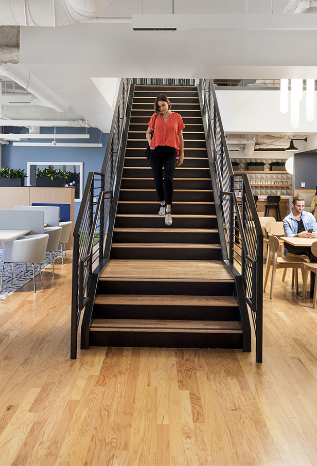It’s been a tough few years, and as the world begins to adopt a ‘new normal’ way of working, many businesses are taking a fresh look at their operating costs and overheads.
Apart from a solid talent pool, a major overhead for many businesses is usually its office space. As several companies embrace a hybrid working method, many are considering relocation, downsizing or even upsizing their rented office spaces. Competitively-priced rented office spaces could mean the difference between keeping people physically on-site or switching to online working models without resorting to redundancies.
Future-proof companies and those who are more agile and digital in their approach may actually be looking for a larger space to accommodate their growing business. It is important to take the time to understand the different types of office spaces for rent that are available and the hidden costs in each case so that you can choose a package that’s right for your business. These tips will help you make that decision.
Consider the type of lease
Until recently, the most common way to rent an office space was a conventional lease. Contracts for this type of space often have a five-year minimum term, although some landlords may offer rent-free periods for a longer-term commitment, and some may offer break clauses. This type of lease is ideal for companies with a structured, measurable growth pattern looking for tenure security and long-term cost savings.
Companies uncertain of their future growth, however, may need to think carefully before committing to a lease of this nature since about 35% of businesses are still uncertain what proportion of their workforce will continue working from home in the future.
Look at facilities and support
Serviced offices tend to offer short-term rents, often with all-inclusive packages around services such as internet and telephone. These spaces tend to better suit businesses that want to keep their office presence but do not want to be tied up with a long-term overhead. An office space with a monthly rolling contract is ideal for those looking to save on costs when amenities like telecoms, meeting rooms and IT infrastructure are shared.
The popularity of these serviced offices has grown in recent years, particularly among SMEs wishing to cut the size (and cost) of the office they need whilst allowing for flexibility through desk sharing and home working. BE Offices has seen demand for office space for less than ten people grow by 45% over the past six months alone.
Your office and company environment can influence the space you need
There is also a growing demand for ‘hot-desks’, standing desks and other flexible methods of working. Some SMEs put their mobile workforces in a nearby location and then only pay for desk space by the hour. This provides a professional appearance and gives employees access to IT, copying, and secretarial services – but only when needed.
To stay relevant in today’s job market and attract the most sought-after talent in the workforce, you need to make sure your company’s culture caters to their needs. And this starts by making sure the office space you rent is welcoming, nurturing and flexible. One of the top reasons a candidate would resign from a job within the first 90 days is if the company culture is not what they expected.
Renting an office space and providing flexible options for your staff not only increases productivity, but will also reduce employee turnover and give you better financial performance in the long-term.
Consider its location
Location is not just about having a postcode in the prime area of your city. You need to consider all things that can make your new workplace a success for those commuting to the space every day. Is the location of your office space convenient to access not only for your employees but for any clients who need to visit you as well? Can parking be found? Are there amenities like grocery stores, daycares and gyms in the vicinity?
Almost 30% of employees show up late for work at least once a month. The office space you choose needs to fit in nicely with the needs and routine of everyone making an effort to come and work from there. Search ‘office space for rent near me’ to see the options around your area.
Rent the right office space for your business
So, which of these approaches is right for your business? The answer is that all, at some point, may influence your decision in your company’s growth cycle. If you are just starting out, you might be able to afford to be flexible in order to keep overheads low by taking advantage of rolling monthly contracts, for example. Whereas once your business begins to grow and you take on more staff members, you most likely will need to look at long-term options when it comes to office space.
Remember, a company’s office requirements will grow with the business – from smaller serviced office spaces to a larger leased office. This is where the flexibility offered by serviced offices can be a huge help to meet your overall and long-term goals.
RELATED: Shared Office Space and How They Work
Whatever type of office space you choose, check the contract thoroughly in order to understand what your commitment will be and for how long. Some clauses could end up tying you in or costing you additional money – such as rolling contracts or compulsory follow-on fees – particularly if you want to exit early. Doing that before you sign will remove any headaches down the line.
For more information on renting a serviced office space near you, please give us a call on 020 3944 7322, and we would be happy to help.


A well-designed office is one of the cost-effective and easiest ways to retain workers and make them more productive